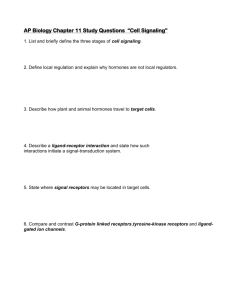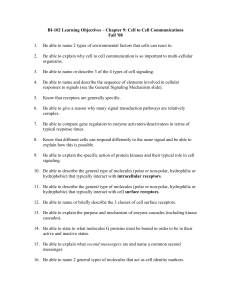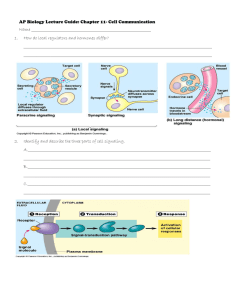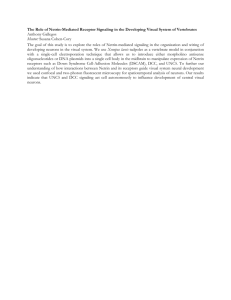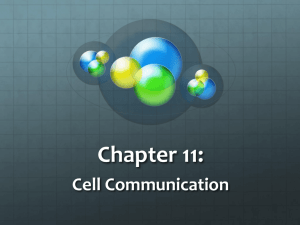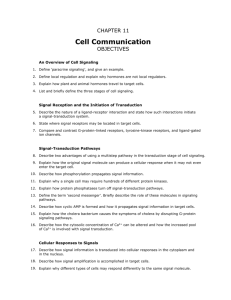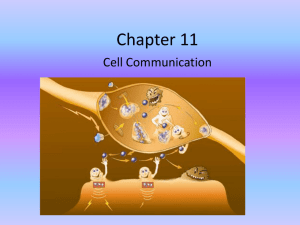Cell Signaling
advertisement
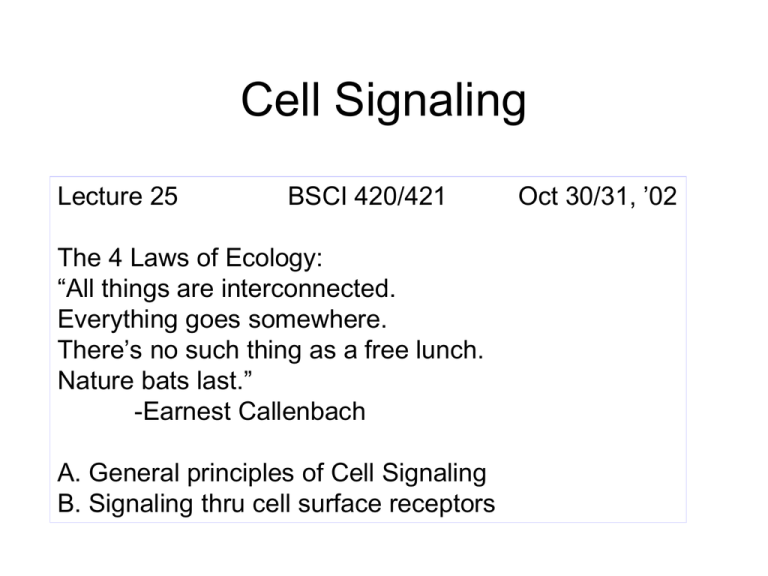
Cell Signaling Lecture 25 BSCI 420/421 The 4 Laws of Ecology: “All things are interconnected. Everything goes somewhere. There’s no such thing as a free lunch. Nature bats last.” -Earnest Callenbach A. General principles of Cell Signaling B. Signaling thru cell surface receptors Oct 30/31, ’02 Cell to cell signaling allows organisms to coordinate the activity of a wide variety of different cell types. A. General principles of cell to cell signaling. Cells can communicate via signal molecules in 4 different ways: Differ in distance over which they act. Closest: e.g. Boss & Sevenless. E.g. Inductive dev. signals E.g. neurotransmitters E.g. Insulin Receptors for signal Molecules can be either: Cell surface Signal mols are water soluble E.g. peptide hormones Induce cytoplasmic signal cascade Or Intracellular Signal molecules are hydrophobic e.g.steroids Carriers in bloodstream A simple signaling pathway or cascade induced by binding To a cell surface receptor Fig.15-1 Signal molecules that bind to intracell receptors, and hence genes. All small & hydrophobic Fig 15-12 Nuclear receptors The DNA-binding domains Contain multiple Zinc fingers An animal cell depends on multiple extracellular signals B. Signaling thru Cell Surface Receptors 3 Classes of Cell Surface Receptors e.g Ach receptors e.g. epinephrine rec. Types of surface receptors, cont. e.g. Growth factor receptors Too much stimulation can be a problem. Cells need to be able to respond to changes in signal over a wide range of conc Target cells can become desensitized in 5 diff ways: G-protein-linked receptors The largest and most widespread family of cell surface receptors, found in all eukaryotes. 7- pass transmembrane proteins Associate with a trimeric G Protein (GTPase) Activated Receptor acts As a GNEF. The alpha subunit Exchanges GTP For GDP The other 2 s-units Dissociate from Alpha, and both Diffuse away in an Active state Activation of target protein e.g. adenylyl Cyclase Hydrolysis Of GTP Formation of The inactive trimer
